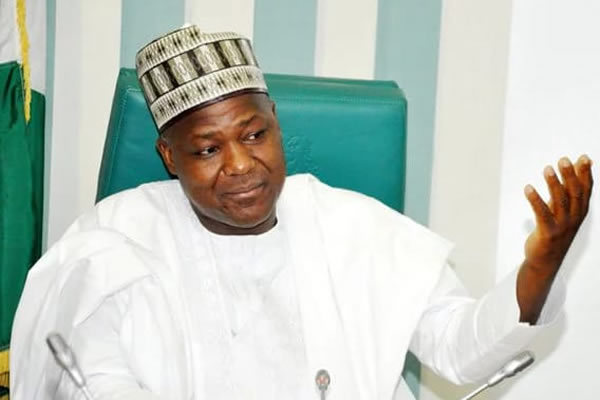- Reps Increase Virement Request to N208.8bn, Reject Coins
A report of the House of Representatives Committee on Appropriation has recommended the raising of President Muhammadu Buhari’s virement request to N208.8bn.
The new figure is higher than the President’s original request of N180.8bn by over N28bn.
The committee, which is chaired by Mr. Mustapha Bala-Dawaki, had laid the report before the House in Abuja on Wednesday, preparatory to approval by the lawmakers.
A breakdown showed that N169.6bn would be vired for recurrent expenditure in the 2016 budget. The capital expenditure component had a total of N39.2bn.
Under recurrent expenditure for instance, the omnibus Service Wide Vote had N71.8bn, while the National Youth Service Corps was allotted N19.7bn.
The Ministry of Defence is to get N12.7bn; payment to local contractors, N25bn; and the Presidential Initiative for the North-East, N1.5bn.
The President had written the National Assembly on October 25, seeking approval to move N180.8bn to other sub-heads in the budget.
The House admitted the virement report just as it asked the Minister of State for Aviation, Mr. Hadi Sirika, to halt the planned concession of airports in the country, pending when he had briefed “the House and Nigerians on how the proposed concession will remedy the challenges facing the aviation sector.”
The House also directed the minister to stop any action on the “concession agreement between the Federal Airports Authority of Nigeria and Bi-Courtney Aviation Service till the case on the transaction is determined by the Supreme Court.”
In addition, it asked the Economic and Financial Crimes Commission to investigate the alleged diversion of the N120bn aviation intervention funds provided by the Central Bank of Nigeria in 2012.
The recommendations were contained in a report by the House Committee on Aviation, which the lawmakers considered and approved on Wednesday.
The committee, which is headed by Mrs. Nkiruka Onyejeocha, had conducted an investigation into the need to rescue the airline industry from imminent collapse and produced a report for the House to consider and approve.
The House also summoned the Asset Management Corporation of Nigeria to appear and fully brief the House on its plan of action to resuscitate Aero Contractors Airlines and investigate the status of payment to Aero by Chevron and discover full details and where the funds were currently domiciled.
For Arik Air and other airlines that are indebted to the Federal Airports Authority of Nigeria, the House directed them to “reconcile their accounts with FAAN with a view to paying off their debts.”
Similarly, all regulatory agencies in the industry, including FAAN, the Nigerian Civil Aviation Authority and the Nigerian Airspace Management Agency were directed to look into the possibilities of collecting their charges in naira.
Meanwhile, a motion seeking to enforce the use of naira coins to transact business in the country, failed.
The motion, which was sponsored by Prof. Mojeed Alabi, failed after the majority of lawmakers rejected it on the grounds that coins had lost value because of rising inflation in the country.
Members suggested that the Federal Government should first put the economy on a recovery path, cut down inflation and raise the buying power of the naira before coins could regain value.


 Naira4 weeks ago
Naira4 weeks ago
 Naira4 weeks ago
Naira4 weeks ago
 Travel4 weeks ago
Travel4 weeks ago
 Jobs4 weeks ago
Jobs4 weeks ago
 Naira4 weeks ago
Naira4 weeks ago
 Naira3 weeks ago
Naira3 weeks ago
 Investment4 weeks ago
Investment4 weeks ago
 Travel4 weeks ago
Travel4 weeks ago



























